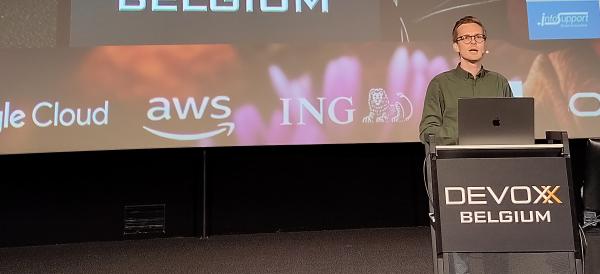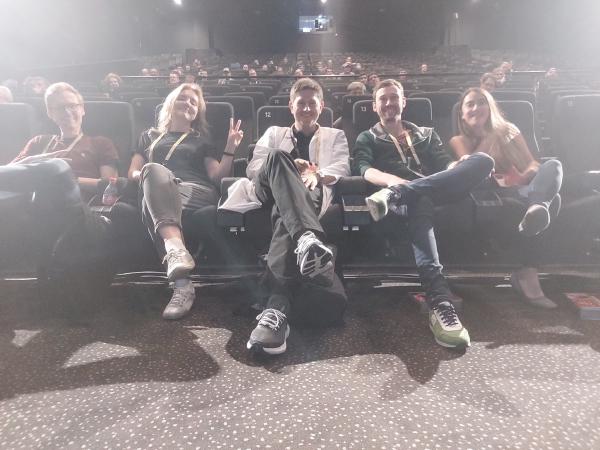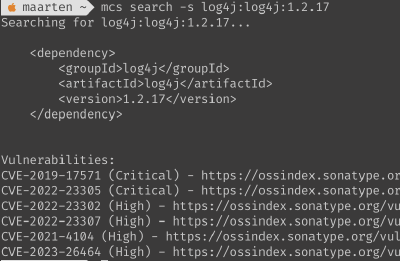
Devoxx 2023: First Impressions
This week, I’ve been attending Devoxx Belgium. It wasn’t my first time around, so I more or less knew what to expect in terms of atmosphere, content and people. In this post, I will share my first impressions. It includes some interesting talks that I joined. Of course, there were more - but those require a larger post, so those may end up in a seperate post later.
A Java lambda is all you need for distributed background jobs!
This talk is a short introduction into JobRunr, a library for background processing in Java. Of course, it included a few demonstrations of what the library can do for you. These also showed the commercial version of the product, which is what Ronald Dehuysser sells for a living, but he was very clear about what comes with the OSS version and what doesn’t.
My first impression is that JobRunr may be an interesting approach to managing background processes, especially when you do not have a heavier framework such as Spring or Jakarta EE in your application. But even if you have, the fact that JobRunr exposes a web-based dashboard for insights into your background jobs and the ability to control any aspect of that background processing may be worth your consideration.
Full recording available on Youtube
Battling your Biased Brain
Boy, am I proud here! It was only four years ago that I was at Devoxx with my colleague Peter Wessels. He was a bit overwhelmed by all the amazing content. Roughly two years ago, he told me he wanted to become a speaker, too, and I started mentoring him. Look at him now: last July, he presented his first solo-talk that immediately ended in the Top-3 of best-rated talks at DevBcn. And this week, he presented the same talk at the Devoxx, where it was also highly appreciated by the audience.

In “Battling your Biased Brain”, Peter discusses various ways in which our judgement may be clouded. Illustrated with various recognisable real-world examples from live and business, he shows that we don’t always think and act as rational and objectively as we think.
A talk well worth your watch!
Full recording available on Youtube
Maintaining Maven at Scale
An interesting session about the work that Tim te Beek is doing in providing many small improvements to the Apache Maven project. As he starts to point out, in a code base as large and old as Apache Maven, you can expect many places where small improvements can be done. As an example, think of removing type information when instantiating generic types:
// Before
List<Project> selectedProjects = new ArrayList<Project>();
// After
List<Project> selectedProjects = new ArrayList<>();
Or, a bit more complex, removing all code that looks like Apache Commons Lang but isn’t. It’s tedious work, but not very challenging, and given that most of the work on Maven is done by people in their spare time, not something that is likely to be picked up soon. Using the Moderne platform that enriches OpenRewrite, Tim shows how he could automate much of that work to provide repeatable, high-quality maintenance work.
Tim also explained the non-technical challenges that he faced. Collaborating with an existing community that isn’t familiar with the approach you take requires carefully tuning in and good communication skills.
Upfront, I was a bit afraid that the talk would be much of a product pitch for the commercial offering of the Moderne platform, but this is absolutely not the case.
Full recording available on Youtube
TornadoVM: Write once, run everywhere…. everywhere!
I’m not going to spoil too much on this one. It’s definitely worth checking out this project and I hope to write a more in-depth blog about it soon™.
Release your creations into the world with JReleaser! 🚀
And finally, although it was in fact the very first day, I had the pleasure to present with my amazing friend and colleague Tom Cools.
We delivered a Tools in Action session around JReleaser.
We were lucky enough to have a fine troll support row right in front of us!

Our highlight was to show how much more convenient releasing software can be when using JReleaser. But we all know that talk is cheap, so in fact we did not run one but two releases live from stage. Tom shipped a new maintenance release of his Rickroll Security Spring Boot Starter. I shipped a new feature release of my MCS tool, which now includes a much-requested option to print previously reported security vulnerabilities against a particular artifact in Maven Central:

Full recording available on Youtube
The Hallway Track
OK, one more thought!
You can review almost all sessions that were presented at Devoxx this year on YouTube. But one track is notoriously missing: the Hallway Track. It’s not on the program, either, but I believe it’s one of the more importants parts of a conference. Literally, as the word “conference” comes from Latin conferre, “bring together”. The Hallway Track is where you actually get to meet your peers, exchange ideas in an informal, unscripted and unprepared way.
On passion, dedication and craftmanship
For instance, I loved the conversation I had with Piotr Przybyl. He asked me a simple question: “You work at a consultancy firm; how does a consultancy firm get to have three Java Champions?”. This resulted in an interesting chat about passion, dedication and craftmanship, and how that is relevant - “even” to a consultancy firm. We’ve also discussed integrity in business and the courage to say “no” when you truly believe your contribution is not going to be in the interest of your (potential) customer.
On open-source citizenship
Another conversation worth mentioning here is that with Geertjan Wielenga. We talked about doing sustainable business when it comes to using open-source software and giving back to the community that builds it. Using open-source software and not paying for it is anyones good right. But as soon as a user (often large corporates) start demanding features, fixes or even simply answers, it becomes different. As Geertjan put it, “what is the relationship that you’ve built with our open source project that enables you to make the demands you’re making of us?”. We discussed the idea of an “fair trade certificate”, but for software companies. Be open and public about which open-source software you use, and how you contribute back - in terms of money or contributions. At Info Support, we are already pretty open about this: Open Source at Info Support gives you an idea of what we do and why we do it.
comments powered by Disqus